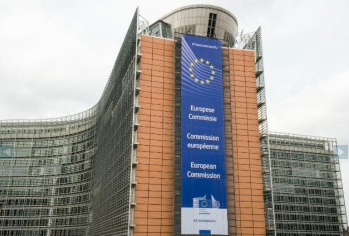Civil society reacts to European Commission strategy on SDGs
Education International has joined with other civil society organisations to demand leadership from the European Union to ensure the full implementation of the sustainable development goals.

The European Commission’s publication of a Communication on the Sustainable Development Goals (SDGs) has been met with dismay by civil society organisations. “Next steps for a sustainable European future - European action for sustainability”, was published on 23 November. It has been criticised by SDG Watch Europe, a civil society alliance of more than 90 European civil society organisations established to hold the European Union (EU) and its member states accountable for the full implementation of the SDGs.
“The SDGs, adopted over one year ago by all UN Member States, are a globally agreed vision for a better, fairer world,” said a SDG Watch Europe’s spokesperson. “They offer the EU a new framework to begin a critical shift away from the current unsustainable paradigm within which inequalities grow, the environment is degraded, climate change accelerates, wealth and political power are concentrated in fewer and fewer hands, and many people across Europe are deeply disaffected with the European Union, its institutions and policies.”
Change in policy needed
The alliance insists that the EU must play its part in promoting an alternative model of development in which people, social justice, environmental and health protection, democracy and transparency take centre stage. SDG Watch Europe is concerned about the low level of detail about an EU-wide implementation plan, which raises questions about the willingness of the EU to realise the transformative vision of the SDGs.
SDG Watch Europe believes that a change of direction in key policy areas is the only way that the SDGs can be coherently implemented by the EU and its Member States . Many European policies are actively undermining the thrust of the SDGs, and increasing economic insecurity, social and health inequalities, environmental damage within and outside Europe, and causing a loss of public trust and political instability.
The alliance is also concerned about the lack of consultation with civil society in the preparation of the Commission’s Communication.
EI: Must focus on completion of education
Welcoming commitments agreed upon by the EU, Education International (EI) also regretted the lack of consultation of civil society, as well as of teacher unions, at the European level,.
“We welcome the commitment to quality education and decent work for all as priority areas for the Commission,” stressed Education International (EI) General Secretary Fred van Leeuwen.
But he added that EI and European educators are surprised by the emphasis on access to education: “We fought hard for a shift from access to completion of primary and secondary education, as outlined in SDG target 4.1, and this must be reflected in the European strategy moving forward.”
Noting that trade unions are rightly recognised as partners for sustainable development, he also underlined that, while EI and its affiliates look forward to playing an active role, this requires “strengthened and institutionalised social dialogue.”
Source: Education International
- 413 reads
Human Rights
Fostering a More Humane World: The 28th Eurasian Economic Summi

Conscience, Hope, and Action: Keys to Global Peace and Sustainability

Ringing FOWPAL’s Peace Bell for the World:Nobel Peace Prize Laureates’ Visions and Actions

Protecting the World’s Cultural Diversity for a Sustainable Future

Puppet Show I International Friendship Day 2020

